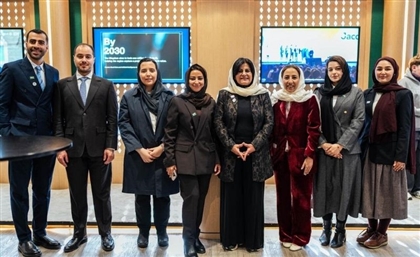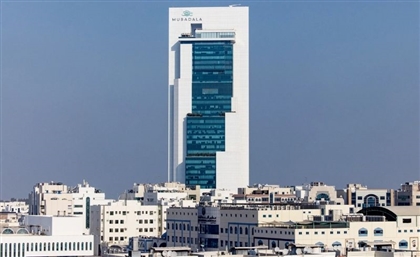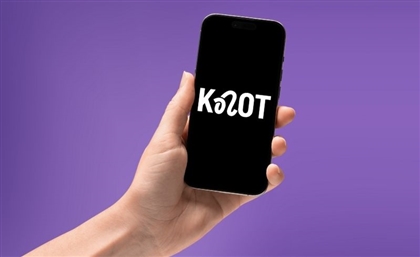How E-Commerce is Giving MENA's Beauty & Fashion Industry a Facelift
Today, new brands and e-commerce platforms are emerging at lightning speeds, transforming MENA's beauty & fashion industries.

Gone are the days where in-person shopping is a necessity for the beauty and fashion industry. Today, through rapidly evolving technology, new brands and e-commerce platforms are emerging at lightning speeds, aligning themselves with the needs and expectations of modern customers to not only stay relevant, but to strengthen their position in the market. And the Middle East is no exception.
The Middle East is one of the fastest growing regions in the fashion e-commerce market, growing at CAGRs of 15.7% between 2021 and 2025, according to data by E-Commerce Solutions. Despite this growth, however, the market is still considered largely untapped and ripe with opportunity, particularly for the three largest markets in MENA - Saudi Arabia, the UAE and Egypt- which is projected to reach $3 billion, $1.9 billion, and $500 million respectively by the end of 2022.
As e-commerce continues to make headway, and as more people adopt online shopping habits, the region’s beauty and fashion e-commerce market is expected to reach new heights: $1207.23 billion by 2025, more than double that of 2019, according to a report by CNNB Solutions.
TURNING POINT
While projections are promising over the next decade, it was the year 2020 that triggered significant growth in the e-commerce market. Although the COVID-19 pandemic took its toll on the global economy, it led to a surge in e-commerce and accelerated the region’s shift to digitisation, particularly in the beauty and fashion space.
Nancy El Khatib, a digital and e-commerce designer, decided to launch her fashion e-commerce platform, Scarlt, in the UAE during the height of the pandemic when consumers and businesses were forced to go online.
“Amid COVID-19, I saw demand for online shopping increase along with the gap for high-quality, affordable fashion clothes, and decided to take the leap,” El Khatib tells StartupScene. “So, I began working on Scarlt, a one-stop e-commerce fashion platform for affordable, high-quality apparel.”
Indeed, the region’s e-commerce market has surged during the pandemic. It is estimated that around 91% of customers in MENA have transitioned to buying online since COVID-19, according to the CNNB Solutions report.But with the removal of lockdowns and COVID-19 restrictions, online shopping has gradually slowed down as people have started going back to normal.
“The major growth was during COVID-19, when the demand for online shopping was at its peak,” El Khatib adds. “Now the competition in fashion is high, especially in the MENA region.”
EMBRACING DIGITAL TRANSFORMATION
The key to keeping the growth momentum going is embracing digital transformation. Lydia Schoonderbeek - founder of Source Beauty, an e-commerce beauty platform based in Egypt - is seeing firsthand how digital transformation is impacting the industry. Since launching her platform in 2018, she has been continuously enhancing the way she connects with her customers online.
“Translating the customer experience online is not easy,” says Schoonderbeek. “The acceleration of e-commerce is quick, considering all the developments taking place digitally. You basically have to reinvent the store. So, when you picture walking into the store, you have to reimagine that experience online. It’s a difficult transition. The beauty industry is experiencing a lot of changes as a part of that. How do you translate smell, colour, and especially makeup to online users?”
To optimise experiences for customers, Source Beauty tries to understand users’ online behaviour, particularly how they browse for products, interact with certain brands, and make purchases. This information helps create more personalised experiences for shoppers, and ultimately cultivates loyal relationships. “We need to be at the forefront of all technology, making sure we’ve implemented all the plugins, apps, bots, AI, and data,” Schoonerbeek explains. “If you look at all the data, it shows you what the customer trends are and what is happening. It’s an ongoing process, but I think the important element of it is that customers really do want that personalisation.”
Like Source Beauty, Kenzwoman, a Palestinian e-commerce intimates apparel platform, is also leveraging technology to engage with customers and boost online sales. It recently launched the very first bra size calculator in Arabic as a proprietary technology, along with a shapewear calculator and a bra quiz.
“We are using these algorithm-based tools to understand our customers, their purchasing behaviour, and purchasing trends in the region,” says Christina Ganim, co-founder and CEO of Kenzwoman. “We get to really know the sizes, styles and colours that customers are looking for based on the tools we launched. It has also reduced returns and exchanges to less than 2%. In the future, we want to add an AI component to make it really technologically advanced.”
ADAPTING TO NEW TRENDS
Alongside digital transformation, the beauty and fashion e-commerce industry has also had to adapt to the changing needs of customers. Today, with the global shift towards sustainability, customers are increasingly adopting more eco-friendly and natural products.
Hadeel Fayek - founder and CEO of Joviality, an Egyptian-based natural beauty company - has been passionate about formulating natural beauty products, long before ‘natural’ was trending. As a student of Pharmaceutical Technology, she wanted to introduce the benefits of using natural ingredients in everyday beauty products like skin and hair care before officially launching her brand in 2016. While the rising trend of natural has been good for business, Fayek states that the term has been overused lately. “There is a strong push for sustainability and naturals but there’s definitely over-claim and confusion around the concept in the market,” Fayek explains. “We believe the shift to natural cosmetics is a conscious movement that supports sustainable natural beauty at its core.”
Sustainability is also a trend that e-commerce platforms are capitalising on. Brands and platforms advocating for recyclable materials, as well as slow and ethical fashion, are slowly starting to gain traction; one in five customers are willing to pay more for a sustainable product, according to the CNNB Solutions report. But Sama Alwasmi- founder of Quinn Hop, a Kuwait-based online design and fashion platform for travel and resort wear - states that while there is increased interest in sustainability lately, it is ultimately her desire to practise ethical fashion that is driving her business.
“I think there’s a trend in a lot of entrepreneurs that are striving to be more ethical, and yes definitely consumers are becoming more concerned about sustainability, but at the same time, we as business owners and entrepreneurs have to be extremely transparent and mindful about what we’re doing and offering our clients,” says Alwasmi. “I think we’re getting there with our clients. Our clients are attracted to sustainable fashion. But for me, I don’t have time for the market to catch up. My goal is to get the client with our quality and what we’re offering. To offer a product that is a product mix, that is far more convenient, more affordable, and more fashionable than the competition, and then have it be sustainable anyway.”
Regardless of shifting trends, the beauty and fashion industry today is presented with more opportunities than ever before to connect with customers directly. The key, it seems, is developing close relationships with customers online and aligning with their values to ensure continued success in the e-commerce space. “Our consumers are at the heart of everything we do,” Fayek says. “With the natural cosmetic industry booming in Egypt and beyond, this is the only way to stay ahead.”
- Previous Article Mobility Fintech Startup Moove Raises $30 Million for Expansion to UAE
- Next Article 10th Edition of RiseUp Summit to Take Place This March
Trending This Month
-
Jan 19, 2026






















